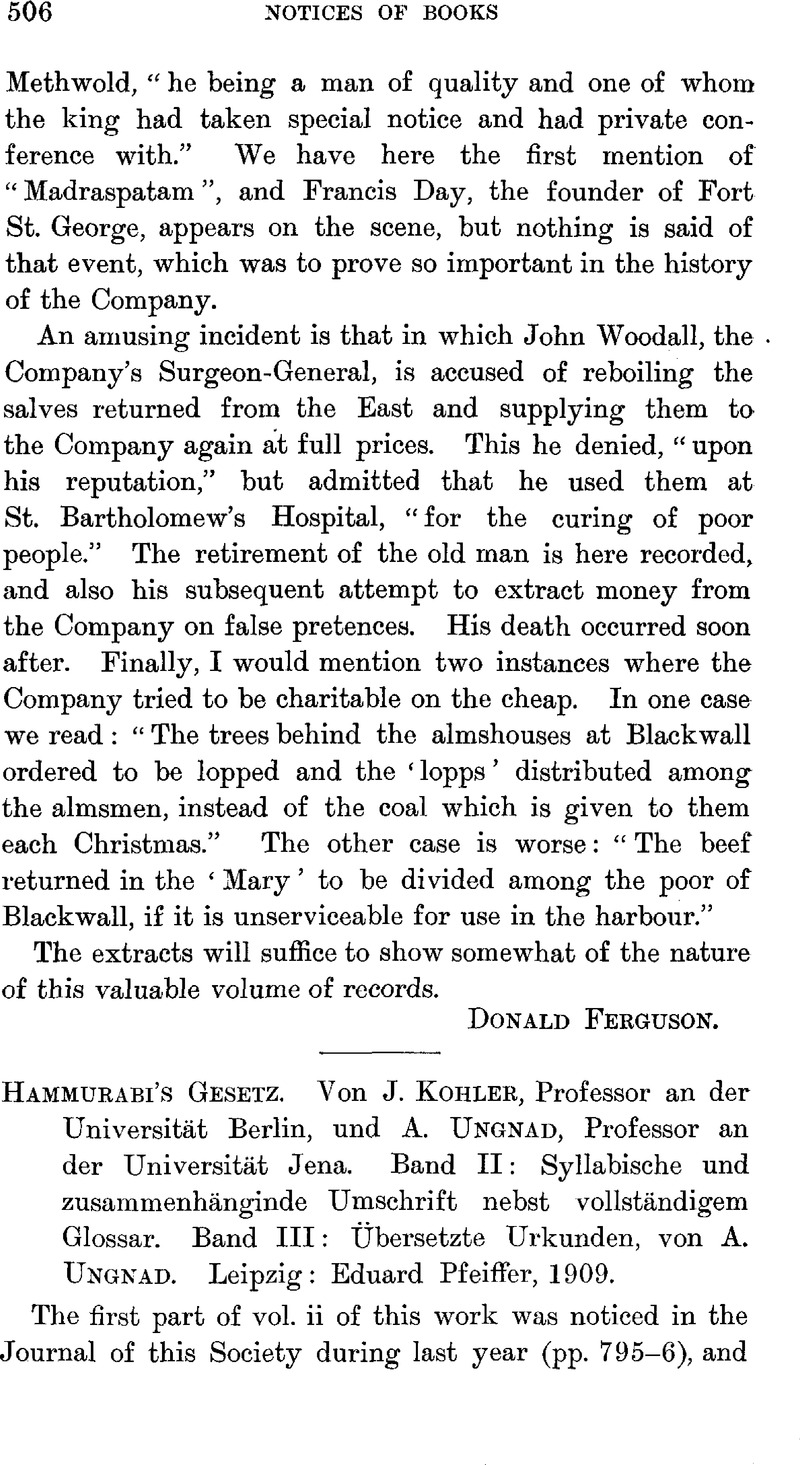No CrossRef data available.
Article contents
Hammurabi's Gesetz. Von J. Kohler, Professor an der Universität Berlin, und A. Ungnad, Professor an der Universität Jena. Band II: Syllabische und zusammenhänginde Umschrift nebst vollständigem Glossar. Band III: Übersetzte Urkunden, von A. Ungnad. Leipzig: Eduard Pfeiffer, 1909.
Published online by Cambridge University Press: 15 March 2011
Abstract

- Type
- Notices of Books
- Information
- Copyright
- Copyright © The Royal Asiatic Society 1910
References
1 The envelope differs somewhat, and a rendering of this may be not without its value. It reads as follows:— “2/3 of a šar, a built house, beside the house of Sakkut-muballit, and beside the house of Šamaštappi-wêdi; 1 female-slave Zarriktum; 2(?) oxen (instead (kima) Iliâwelim-rabi has taken a female-slave). (This is) the sharing of Šamaššîzibanni and Uttatum, which they have shared with Ili-âwelim-rabi, their brother. They have shared. It is finished (gamram). Their heart is content. At no future time shall one bring action against another. They have sworn by Šamaš, Aya, Merodach, and Samsu-iluna, the king.”
In the published text the words corresponding with kima, “like,” “instead of,” are ana maki-ma. This must be the ammaki or ammaku (ana maki, ana maku) of the Flood-tablet, lines 187ff-, where, instead of a deluge, reduction of mankind by the lion or the hyæna (?), or the destruction of the country by famine or pestilence, is recommended as being preferable. From the texts quoted, the presence or absence of the enclitic particle -ma would seem to have made no difference. The word-order on the tablet is šina(?) alpē ana maki-ma Ili-âwelim-râbi amtam ilki, and on the envelope šina (?) alpê kima amti Ili-âwelim-râbi ilku (for ilqu).




